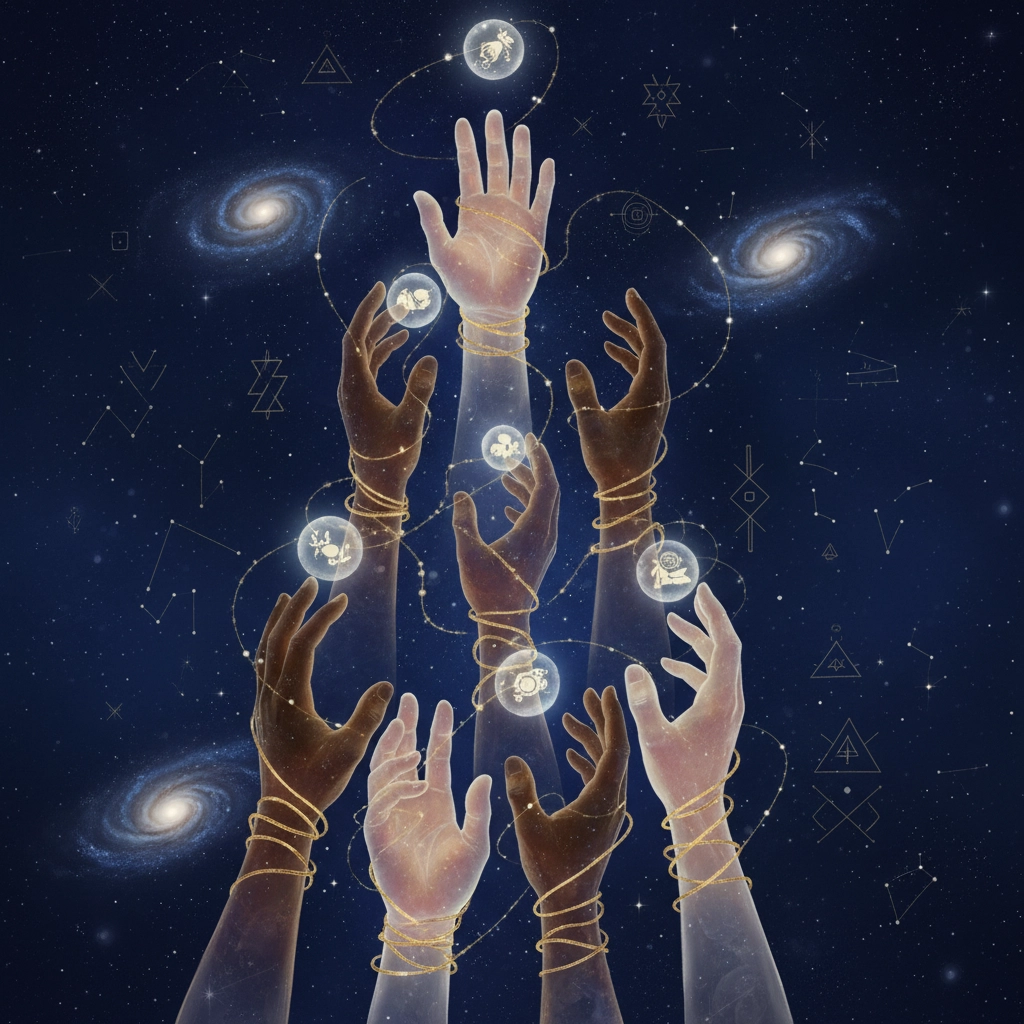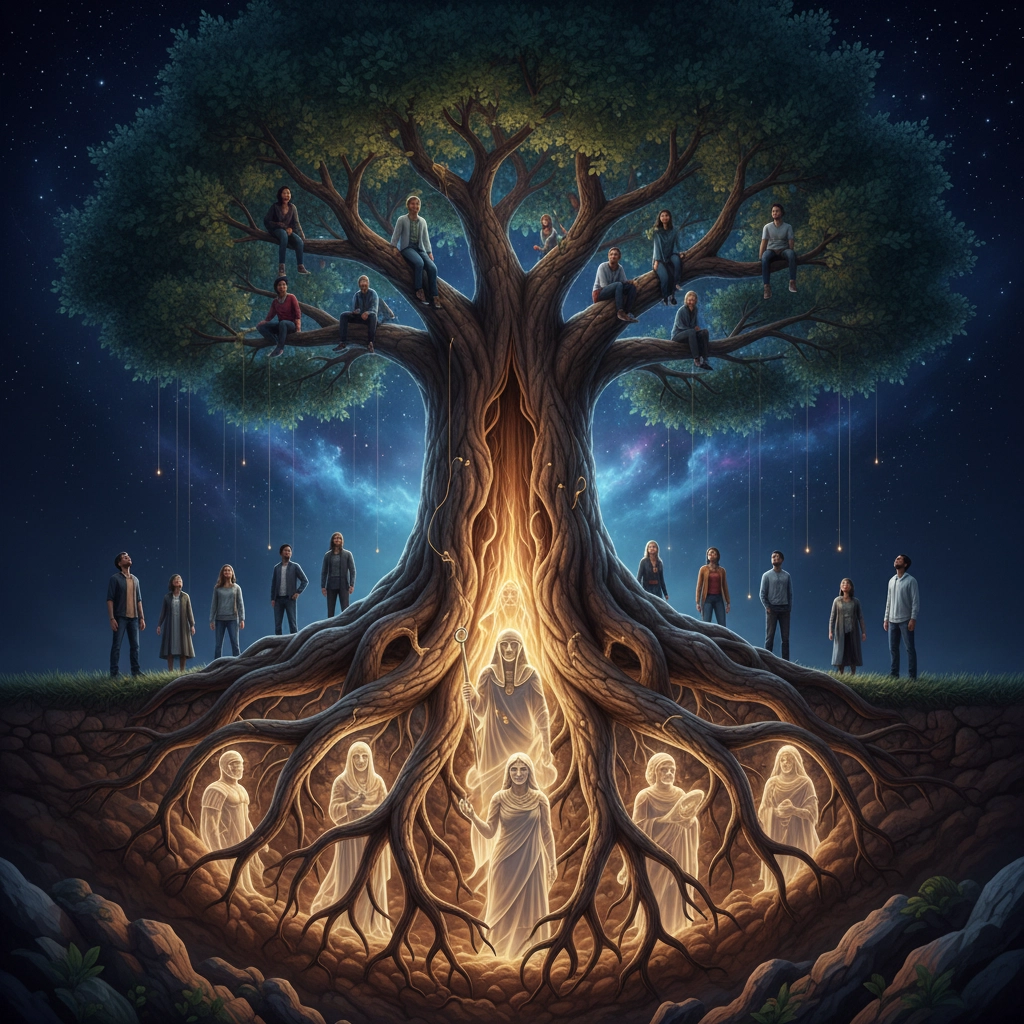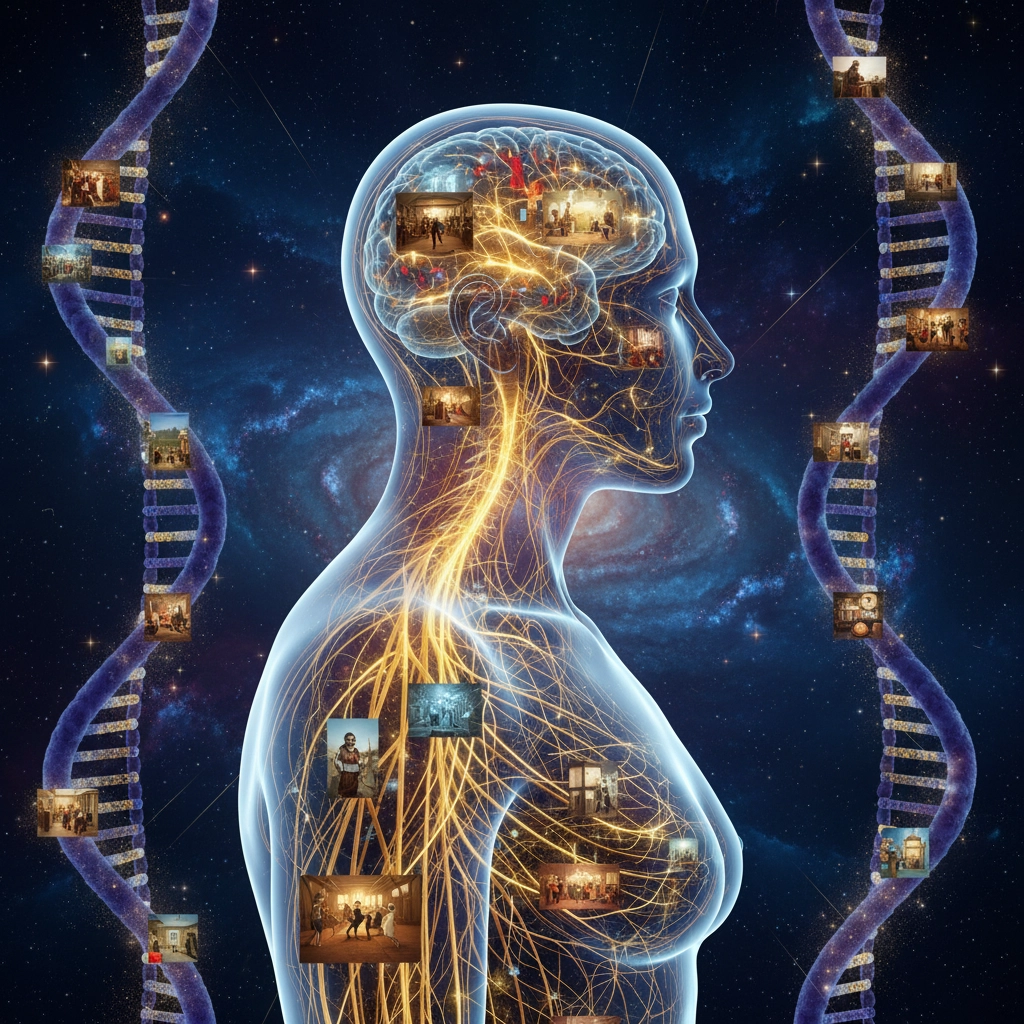Walk into any wellness circle, scroll through social media, or listen to conversations at your local coffee shop, and you'll hear it: ancestral trauma. What once lived in the shadows of psychology textbooks and therapy sessions has emerged as one of 2025's most talked-about concepts. But this isn't just another wellness trend destined to fade by next season.
This is a fundamental shift in how we understand ourselves, our patterns, and the invisible threads that connect us to those who came before us.
The Awakening That's Been Decades in the Making
The conversation around ancestral trauma didn't start in 2025: it began in 1966 when psychiatrist Dr. Vivian M. Rakoff published groundbreaking research on Holocaust survivors' children. What he discovered shook the mental health world: children who never experienced the Holocaust directly were showing significant psychological symptoms connected to their parents' unresolved trauma.
For decades, this research remained largely academic. Then something shifted. Popular culture began exploring these themes: shows like "Bloodline" in 2015 started examining how family secrets and trauma ripple through generations. By 2018, search traffic for "ancestral trauma" began climbing steadily, and it hasn't stopped.
But 2025 feels different. This is the year ancestral trauma moved from niche therapeutic circles into mainstream consciousness. Why now?

What Ancestral Trauma Actually Is (And What It's Not)
Let's get clear about what we're actually talking about here, because there's a lot of confusion swirling around this term.
Ancestral trauma: also called intergenerational or generational trauma: is the transmission of unresolved emotional and psychological wounds from previous generations to their descendants. This isn't mystical or metaphorical. It's backed by solid science in the field of epigenetics, which shows us how our experiences can influence gene expression and these modifications can be inherited.
Think of it this way: your great-grandmother's unprocessed grief from losing children to disease, your grandfather's unhealed wounds from war, your mother's suppressed anger from systemic oppression: all of this can leave biological and psychological imprints that get passed down like family recipes.
But here's where people get confused. Ancestral trauma isn't fate. It's not a life sentence that dooms you to repeat your family's patterns. It's information. Data about where certain behaviors, fears, or emotional responses might be coming from. And with that information comes power: the power to heal, transform, and break cycles.
How This Shows Up in Your Actual Life
The manifestations of ancestral trauma are often subtle, which is why it can take years to recognize them. You might experience:
Unexplained emotional reactions that seem disproportionate to current circumstances. That crushing anxiety about money even when you're financially stable? The inexplicable fear of abandonment despite being in secure relationships? These might be echoes of your lineage's unresolved stories.
Repetitive family patterns that seem to play out generation after generation. The women in your family who struggle with self-worth, the men who can't express emotion, the recurring themes of addiction, financial instability, or broken relationships that appear across decades.
Physical sensations or symptoms that medical tests can't explain. Your body holds generational memory too. Chronic tension in your shoulders might be carrying the weight your ancestors couldn't bear. That knot in your stomach could be inherited anxiety from those who lived in constant survival mode.
Relationship dynamics that feel both familiar and frustrating. You find yourself recreating the same conflicts your parents had, or you're attracted to partners who trigger the same wounds that have plagued your family for generations.

The Science That Changed Everything
Here's where this gets really interesting: and why 2025 is the tipping point for this conversation.
Epigenetic research has exploded in the last decade, giving us concrete evidence for what traditional cultures have always known: trauma doesn't just affect the person who experiences it. Environmental factors, including trauma, can alter gene expression without changing the DNA sequence itself. These changes can be passed to offspring, creating a biological inheritance of trauma responses.
Studies on descendants of Holocaust survivors, enslaved people, and survivors of other historical traumas have consistently shown higher rates of anxiety, depression, and PTSD: even in generations that never directly experienced these events.
But here's the revolutionary part: epigenetic changes can be reversed. The same mechanisms that transmit trauma can also transmit healing. When we actively work to heal generational wounds, we can literally change what we pass on to future generations.
Why This Matters More Than Ever in 2025
We're living through unprecedented times of collective trauma. The last several years have brought global pandemics, climate catastrophe, social upheaval, and economic uncertainty. These events are creating new layers of trauma while simultaneously triggering unhealed wounds from our ancestral past.
People are finally ready to look deeper than surface-level solutions. The traditional approach of treating symptoms without addressing root causes isn't working for a generation that's inherited multiple layers of unprocessed collective and family trauma.
There's also been a cultural shift toward taking responsibility for our healing: not just for ourselves, but for our lineages. Social media has made it impossible to ignore systemic issues, and people are beginning to understand that individual healing is connected to collective healing.

The Cultural Wisdom That's Been There All Along
What's fascinating is that many traditional cultures have always understood ancestral trauma: they just didn't call it that. In African spiritual traditions, there are specific practices for honoring and healing ancestral wounds. Indigenous cultures worldwide have ceremonies for releasing generational patterns that no longer serve.
Even in Western traditions, we see this understanding woven into religious practices: prayers for the dead, rituals for forgiveness, and ceremonies that acknowledge the connection between generations.
The 2025 conversation around ancestral trauma is really a return to ancient wisdom, now backed by modern science. We're remembering what our ancestors knew: we are not separate from those who came before us, and healing happens in relationship: not just with the living, but with our entire lineage.
What You Can Actually Do About It
Understanding ancestral trauma is step one. But what do you do with this information?
Start with awareness. Notice the patterns in your family. What themes keep showing up? What behaviors, beliefs, or struggles seem to repeat across generations? Write them down. Name them. See them clearly.
Honor what your ancestors endured. They survived so you could be here. Their trauma responses served a purpose: they kept them alive. Acknowledge their strength while recognizing that what served them might not serve you.
Seek the right support. This work is deep and often requires professional guidance. Look for therapists trained in trauma-informed care, somatic healing, or specifically in ancestral trauma work.
Connect with your spiritual practice. Whether that's through ancestral healing ceremonies, meditation, prayer, or ritual, create space to commune with your lineage in healing ways.
Break the cycle consciously. Every pattern you heal, every trauma you process, every new choice you make creates a different legacy for future generations.
The Ripple Effect of Your Healing
Here's what makes this work so powerful: when you heal ancestral trauma, you're not just healing yourself. You're healing backward into your lineage and forward into future generations. You become the one who says, "This stops with me."
This is why everyone is talking about ancestral trauma in 2025. It's not just personal healing: it's collective transformation. It's the recognition that our individual wellness is intimately connected to the wellness of our entire lineage, our communities, and our world.
Your healing matters. Your willingness to face these deeper truths and do this sacred work of restoration ripples out far beyond what you can see. In a world hungry for authentic transformation, ancestral healing offers a path that honors where we come from while creating space for who we're becoming.
The conversation is happening now because we're ready for it. The question is: are you ready to be part of it?


